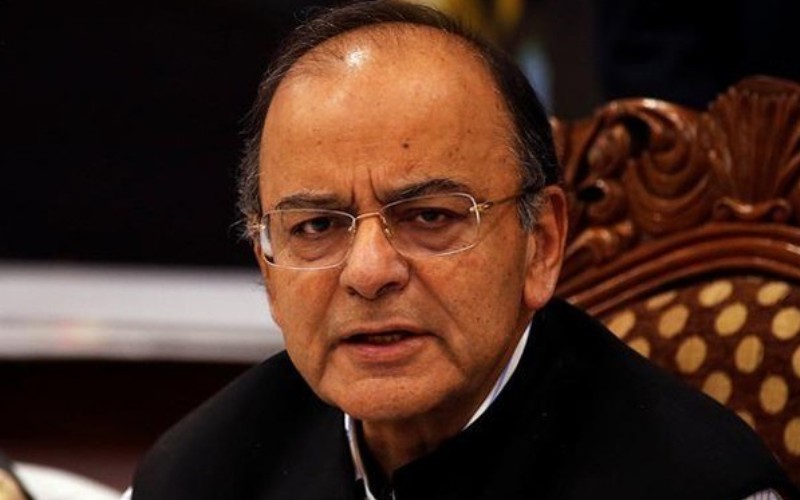New Delhi: Finance Minister Arun Jaitley on Sunday drew a comparison between 2014 and 2018 International Monetary Fund (IMF) staff reports in order to highlight the economic growth and transformation that took place under Prime Minister Narendra Modi government.
Citing the report, which he says, is produced with consultations with various experts after analysing the economic data, Jaitley in his blog stated, “An analysis of what the IMF had to say in 2014 as against 2018 is very clear – high inflation, high fiscal deficit, high current account deficit, a standstill infrastructure, power sector, allocation of natural resources. We have come a long way.”
He further emphasised on the decisiveness and transparency of the ruling dispensation and added, “The last four years have seen a series of reforms, both legislative and otherwise, which have been carried at by the Government. The system has been substantially cleaned up and made more transparent. Decisiveness has led to easier decision making and made the economy stand out before several other countries.”
To back his claims Jaitley reproduced the summary of what IMF had to say about India in January-February, 2014 i.e. the last few months of the UPA Government and now in July-August, 2018.
Underlining the differences, Jaitley said, in 2014, “the tightening of global liquidity has increased external pressures and heightened the focus on India’s macroeconomic imbalances (high inflation, large current account and fiscal deficits) and structural weaknesses (particularly supply bottlenecks in infrastructure, power and mining)”.
Referring to the report, he further wrote, “Growth is expected to slow to 4.6 percent this fiscal year, the lowest level in a decade, reflecting global developments and domestic supply constraints. Headline CPI inflation is expected to remain near double digits for the remainder of the fiscal year.
The current account deficit is narrowing, driven by a significant improvement in exports, robust remittances flows, and a rapid diminution of gold imports. Nonetheless, India has very little room to adopt countercyclical policies, constrained by persistently-high inflation, and sizeable fiscal and external imbalances. Spillovers from renewed external pressures interacting with domestic vulnerabilities are the principal risks.”
The 2014 report also insisted on “addressing supply bottlenecks and structural challenges-particularly in the agriculture and power sectors, and in the pricing and allocation of natural resources (including coal, natural gas, and fertilizers)” to achieve faster growth, job creation and poverty reduction.
After these brief details from 2014 report, Jaitley then reproduced portions of IMF staff report for 2018, which read, “Stability-oriented macroeconomic policies and progress on structural reforms continue to bear fruit. Following disruptions related to the November 2016 currency exchange initiative and the July 2017 goods and service tax (GST) rollout, growth slowed to 6.7 percent in FY2017/18, but a recovery is underway led by an investment pick up.”
“Headline inflation averaged 3.6 percent in FY2017/18, a 17-year low, reflecting low food prices on a return to normal monsoon rainfall, agriculture sector reforms, subdued domestic demand, and currency appreciation. With demand recovering and rising oil prices, medium-term headline inflation has risen to 4.9 percent in May 2018, above the mid-point of the Reserve Bank of India (RBI)’s headline inflation target band of 4 percent ± 2 percent. External vulnerabilities remain contained but have risen,” he wrote.
“The current account deficit (CAD) widened to 1.9 percent of GDP in FY2017/18, on rising imports and oil prices. Gross international reserves rose to US$424.5 billion (about 8 months of prospective imports of goods and services) at the end of March 2018, but declined to US$407.8 billion in the third week of June 2018,” he added, referring to the report.
Jaitley took back the charge of Finance Ministry on August 23, after recovering from a kidney transplant surgery.
[source_without_link]ANI[/source_without_link]

